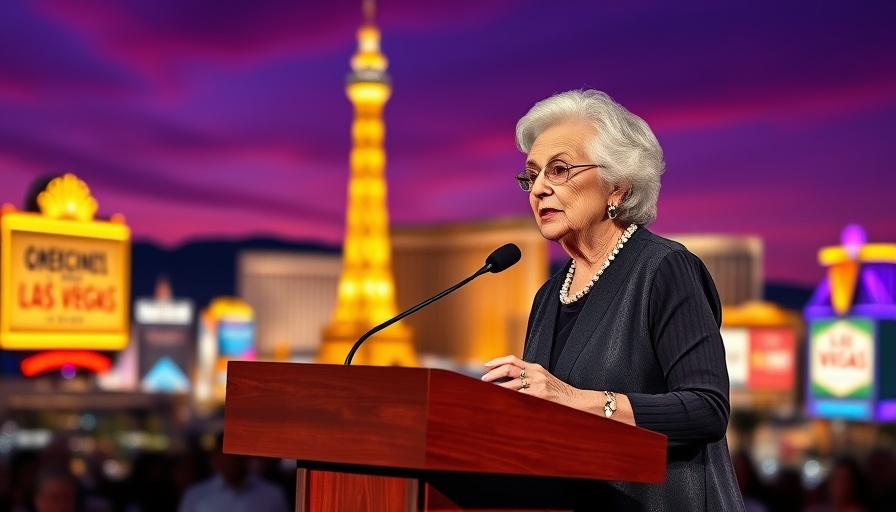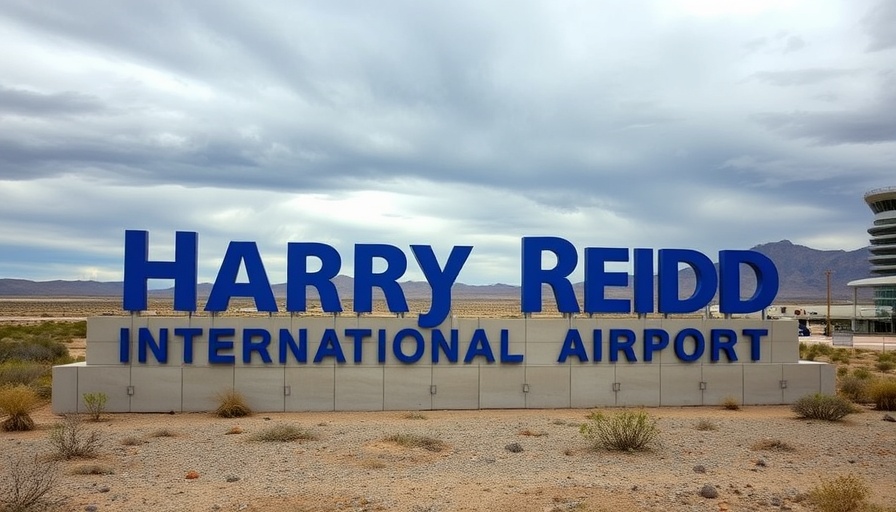
The Changing Landscape of Gambling Tax Law in Las Vegas
In an intriguing turn of events, Las Vegas residents and stakeholders in the tourism and gaming industries are witnessing a major shift in the regulations governing gambling taxes. The changes originated from former President Donald Trump's administration, which introduced a bill that adjusted how winnings from casinos are taxed. This update sparked debates both locally and nationally, highlighting glaring differences in tax burdens that affect gamers and businesses alike.
Local Stakeholders React
With tourism as a vital cog in Las Vegas' economy, numerous voices within the community are weighing in. Casino workers, hospitality professionals, and business owners are particularly invested, as the original changes significantly affected their revenue streams and livelihoods. In essence, many residents felt the pinch of higher tax obligations and reduced take-home winnings, compelling some local representatives, including Congressman Mark Titus, to take action.
The Proposed Changes: The Titus Bill
Cong. Titus’ proposed bill aims to repeal Trump's gambling tax changes, returning to the previous regulations that benefited everyday gamblers. By reinstating the old tax structure, Titus hopes to stimulate local economy growth and ease the burden on those trying to enjoy the entertainment offerings that Vegas is famous for.
Potential Impacts on the Las Vegas Economy
Reverting to the old tax code may allow greater disposable income for gamblers, encouraging more visits to local casinos and potentially increasing spending at associated businesses. The positive ripple effect could bolster the restaurant, nightlife, and entertainment sectors that thrive on tourist dollars. This proposal caters not just to the local Las Vegas economy but also fosters a sense of community among regular patrons who enhance the vibrant social scene—something that has always been at the heart of Vegas culture.
Community Perspectives on the Developments
The local response has been largely enthusiastic, particularly among gaming enthusiasts and those dependent on the associated industries. Residents are eager for change, expressing hope that Titus’ efforts will rejuvenate a gaming landscape already stressed by the pandemic's impact on Las Vegas tourism. For many, the ability to win more from slots and table games without high taxes brings back excitement, promising increased foot traffic within the entertainment district.
Looking Ahead: The Future of Gambling in Vegas
As Congress prepares to deliberate on Titus's proposal, the conversations around the gambling tax law will undoubtedly shape the future of Las Vegas gaming culture. Furthermore, it raises awareness about how legislative changes can significantly impact local economies. Should the bill gain traction, Las Vegas may see a renewed wave of tourism and local pride, revitalizing a city that has long been the capital of fun and leisure in the United States.
 Add Row
Add Row  Add
Add 



Write A Comment